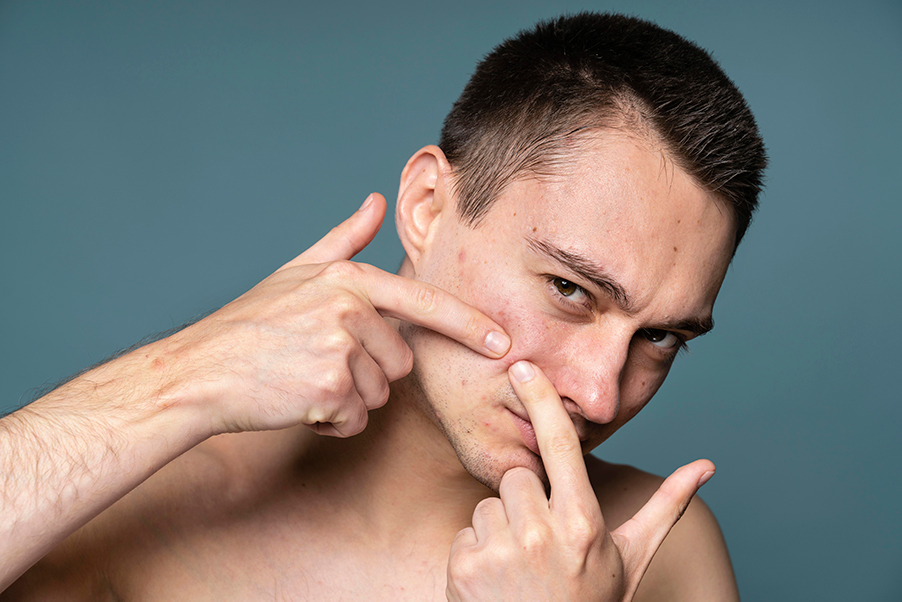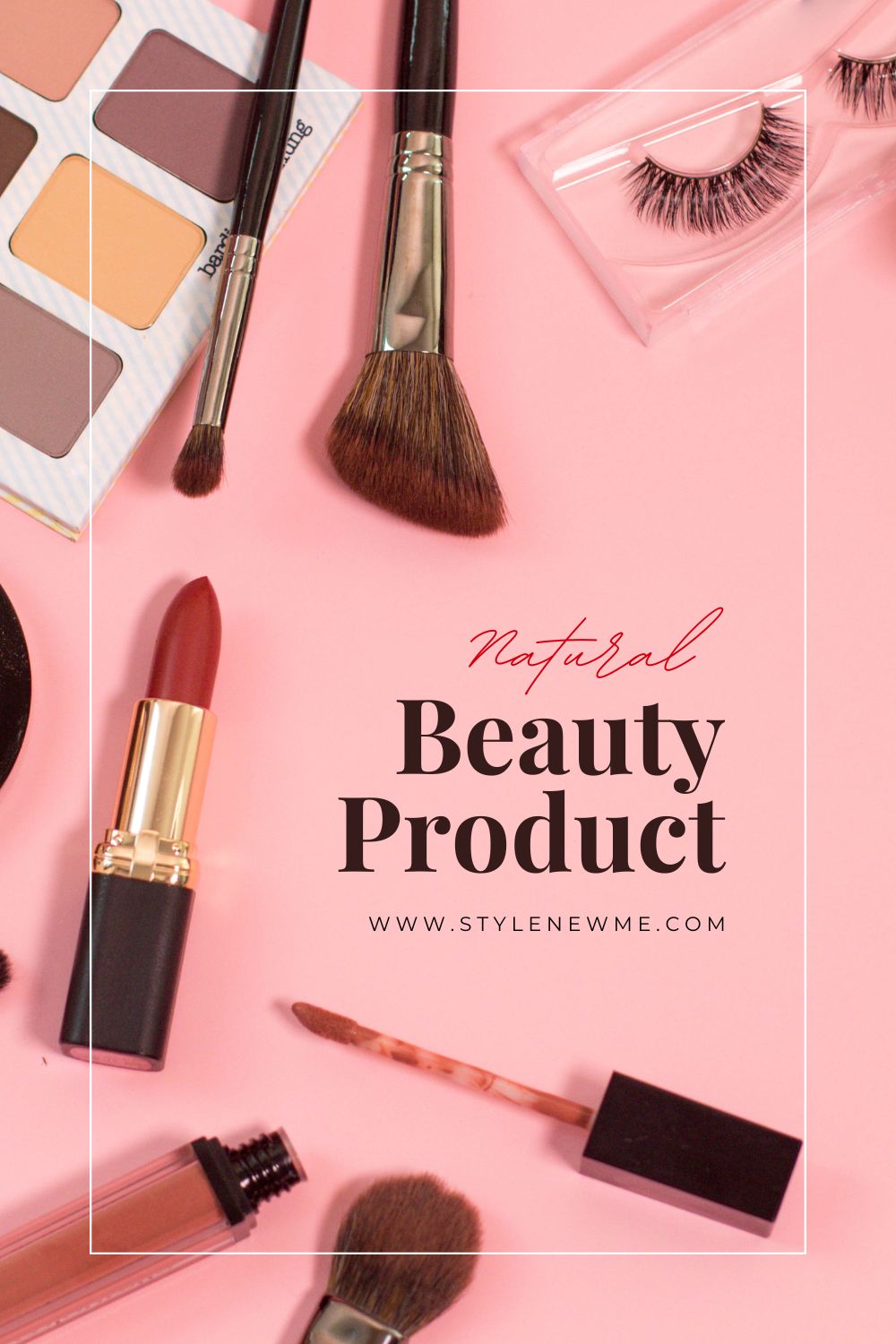Although everyone has a different skin condition, acne is a common one that affects people from many backgrounds; nonetheless, men and women express it differently. Men often have more severe and consistent acne, mostly owing to hormonal elements and lifestyle choices. Men who completely understand the causes, efficient treatments, and preventative measures will be able to control their acne and get better, cleaner skin.
Understanding Acne in Men
Dead skin cells and oil (sebum) blocking hair follicles cause acne. By means of inflammation, this barrier generates an environment suitable for bacterial growth, which can increase blackhead, whitehead, and pimple production. Men can have different frequencies and degrees of acne depending on numerous specific circumstances.
- Hormonal Changes
The hormones that mostly influence acne formation, androgen testosterone, in particular, are rather crucial. Under control by testosterone, the sebaceous glands produce more sebum. Extra oil can clog pores, therefore producing ideal conditions for the growth of acne-causing bacteria. Although this hormone activity peaks in adolescence, it can also influence adults, particularly in demanding conditions or while using anabolic steroids.
- Genetics
One is more likely to have such skin problems if close relatives have suffered from severe acne. The degree of inflammation, skin sensitivity, and sebum production are influenced by genetic propensity.
- Diet and Lifestyle
Still, another important consideration is diet. High-glycemic diets’ white bread and sweet snacks could aggravate acne by raising blood sugar levels and producing hormonal changes. Dairy products also have a link to some people’s aggravation of their acne. Stress, sleep deprivation, and bad skin care practices can aggravate current acne; these things can also start it.
- Shaving and Skin Irritation
Dull razors or incorrect shaving methods can aggravate the skin and cause acne-like blebs or ingrown hairs. Men who use heavy, oil-based grooming products could unintentionally aggravate their acne by closed pores.
Effective Treatments for Acne
Men’s acne treatment calls for a focused approach aiming at the underlying causes of the disorder. Usually, this calls for oral drugs, lifestyle changes, and topical therapies taken in concert.
- Topical Solutions
With over-the-counter treatments with active chemicals like salicylic acid and benzoyl peroxide, mild to moderate acne patients can help clear pores and lower inflammation. Dermatologists can write prescriptions for tretinoin cream for more severe or relentless acne. Strong retinoid produced from vitamin A accelerates skin cell turnover, therefore lowering the possibility of pore clogs. Tretinoin also helps acne scars vanish over time, so they fairly tone the skin and smooth it.
- Oral Medications
Cases ranging from moderate to severe could call for oral medications to treat bacterial infections and lower inflammation. Some people with extreme cystic acne are given hormonal therapies like oral isotretinoin. Though given possible negative effects, these drugs should only be used under the direction of a dermatologist.
- Professional Treatments
Dermatologists could advise laser treatment or chemical peels for resistant acne. Chemical peels help to eliminate outer layers of skin, therefore enhancing skin texture and maybe reducing acne. Treatments involving exfoliation also help with this. Conversely, laser treatments eliminate acne-causing bacteria and target sebaceous glands to lower oil output.
Tretinoin Cream: A Game-Changer
Among the most successful therapies available today for acne, tretinoin cream stands out for many advantages. Tretinoin not only cures present acne but also resolves hyperpigmentation and scarring left over from prior episodes and stops future outbreaks. Tretinoin guarantees that pores stay clear and that the production of new skin cells forces the shedding of old ones, therefore enhancing the texture of the skin.
Starting tretinoin at night, dab dry, clean skin with a pea-sized dab. Some customers report dryness, peeling, or more sensitivity throughout the first several weeks. Usually, these negative effects go away with changing skin. Frequent use of a moisturizer and sunscreen helps to reduce irritation, as tretinoin might leave the skin more prone to sun damage.
Preventing Acne in Men
While treating current acne is crucial, long-term clear skin mostly relies on preventability as well. The chance of breakouts can be greatly lowered with a proactive approach combining sensible skincare with good habits.
- Daily Skincare Routine
Two everyday skin cleaners ought to be light, non-comedogenic ones. Strong scrubs should be avoided as they aggravate skin problems, including acne. Choosing a moisturizer free of oils helps to protect the skin’s natural barrier after washing. Men should also steer clear of greasy or heavy grooming products that could block pores.
2. Dietary Modifications
Keeping a balanced diet helps to greatly improve skin condition. Meal planning with fresh fruits, vegetables, nutritious grains, lean meats, and sugary and processed meals helps control hormonal changes worsening acne. Just as important is water; enough of it helps the body eliminate toxins and keep skin nourished.
3. Stress and Sleep Management
Stress over the long term elevates cortisol levels, which could aggravate acne and boost oil production. Adopting stress-relieving activities will aid either meditation, exercise, or hobby-based interests. Moreover, supporting hormonal balance and skin healing guarantees that every night, at least seven to eight hours of great sleep.
4. Shaving Smartly
Sharp razors and shaving in sync with hair development help to reduce inflammation. Men who find themselves prone to ingrown hairs can think about consulting a doctor on several hair removal techniques, including an electronic razor.
5. When to Seek Professional Help
While best efforts at at-home treatments help with acne, some cases call for expert assistance. Men having cystic eruptions, severe or painful acne, or obvious scarring should see a dermatologist. Customized treatment programs that can call for advanced treatments or prescription drugs will guarantee the best results and suit special needs.
Conclusion
Men with acne who apply the correct knowledge and techniques have a treatable issue. Men will have better and cleaner skin if they know the reasons for their skin issues and apply acceptable remedies, including tretinoin cream. Prevention is, therefore, highly important since long-term skin health depends on skin care routines, dietary changes, stress management, and other elements as well. Even the most obstinate acne may be under control with tenacity and patience, therefore enabling men to feel confident and comfortable in their skin.




